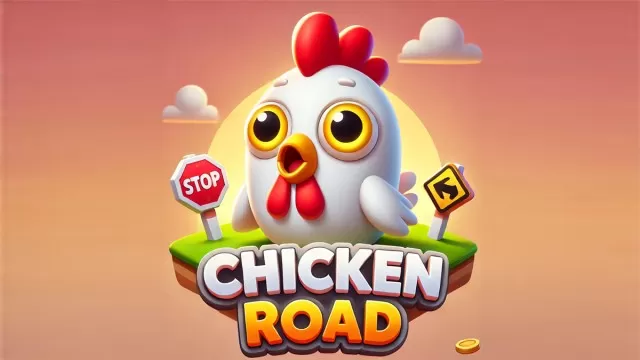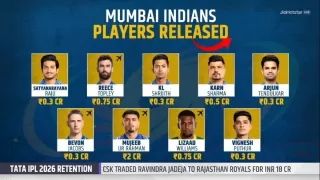What to expect when you start Chicken Road

Starting a new game is usually a gentle experience. You get a menu, a tutorial, maybe even a bit of story to ease you in. Chicken Road does none of that. From the first moment you tap the screen, you're thrown into a frantic sprint across unpredictable traffic, where hesitation equals failure and every move matters. It's not just a test of reflexes—it's a wake-up call for your focus.
There’s no lengthy onboarding or dialogue boxes explaining mechanics. The game simply opens, dares you to survive, and watches what you do. Even the chicken road login process is fast and minimal—no delays, no fluff. This stripped-down approach fits the nature of the game perfectly. Everything you need is right there, waiting to be discovered through action.
New players quickly learn that what looks simple is anything but easy. You’ll lose in seconds, tap too fast, wait too long, and misread patterns. And yet, you’ll restart. Not because the game asks you to, but because something about it pulls you back in. You want to do better, go further, and feel that rush of narrowly escaping another car.
The beginning isn’t about performance—it’s about orientation. It's the moment when you realize you're not just playing a game. You’re stepping into a tight, unforgiving loop of movement, rhythm, and instinct. And once you start, it’s surprisingly hard to stop.
Mastering the basics: how to control your chicken the right way
At its core, Chicken Road is built on a single mechanic: tap to move forward. No virtual joystick, no swiping, no combinations—just one simple input. And yet, that one tap carries more weight than it seems. It's not just about moving. It's about when to move. That timing is the heart of the game, and mastering it is the difference between a 3-second run and a 300-point streak.
Most players lose quickly in their first few rounds because they underestimate the precision required. Tapping too early puts you in the path of a speeding vehicle. Tapping too late leaves you stuck and vulnerable. There’s no reverse, no pause, no undo. Each step is a commitment. The simplicity of the control scheme forces you to be deliberate, aware, and fully present.
If you're starting from scratch, here's a basic step-by-step approach to help you understand the core movement mechanic:
- Tap once to move forward a single space. Never hold or double-tap—this isn’t a game of speed, but timing.
- Watch ahead, not just your position. Start scanning two to three spaces forward to anticipate gaps in traffic.
- Count intervals between vehicles to identify patterns. Many cars appear in consistent rhythms, which helps you predict the next opening.
- Pause intentionally. Standing still is safer than rushing. If you’re unsure, wait for a better moment.
- Let sound guide you. Some vehicles can be heard before they appear. Listen for engine sounds or honks—they give you an extra edge.
Control in Chicken Road is about rhythm, not reaction time. The best players don’t tap faster—they tap smarter. With enough repetition, you’ll stop making guesses and start recognizing flow. Your hands will know what to do before your brain finishes thinking about it.
Understanding this control system early on lays the groundwork for everything that follows. If you treat every tap like a decision instead of a reflex, you’ll find yourself progressing more consistently—and with far fewer game-overs.
The objective is survival: what you're really trying to do
On paper, the goal of Chicken Road is laughably simple: get the chicken to cross the road without being hit. But the deeper you get, the clearer it becomes that the real objective isn’t just reaching the next tile—it’s surviving chaos, outlasting your instincts, and maintaining calm under pressure. The game doesn’t need elaborate missions or changing objectives because staying alive is challenge enough.
Each new line you cross adds subtle difficulty. Vehicles come faster, gaps between them shrink, and your reaction window tightens. Yet, the game never announces a difficulty spike. It escalates gradually, silently, in a way that feels natural until you suddenly realize how far you've come. There are no stages or levels—just continuous progress, measured by how long you can keep going before a single mistake resets everything.
This design gives the game an almost meditative rhythm. You’re not playing toward a finish line—you’re building momentum, sharpening your perception, and testing how long you can hold focus. That’s the true essence of the objective: not to win, but to endure. It’s about consistency more than glory.
There are no power-ups to save you, no shields to fall back on, no undo button if you misstep. What you have is awareness, rhythm, and your own judgment. The game puts full responsibility in your hands, and in doing so, it empowers you. Every inch of progress is earned, not given.
Over time, you’ll stop thinking about scoring and start thinking about flow. You’ll feel the pulse of the traffic, anticipate your next steps before they happen, and recognize that this game rewards mental control just as much as physical timing. That shift in mindset is when you stop just playing—and start surviving.
Spotting danger and acting fast: how to read the road
The greatest threat in Chicken Road isn't the traffic itself—it's your inability to see patterns before it's too late. The cars, trucks, and hazards aren't random obstacles; they’re part of a moving system that rewards awareness and punishes hesitation. Learning to recognize danger early is one of the most valuable skills a player can develop, and it's what separates short-lived runs from impressive streaks.
New players often focus too much on the space directly in front of the chicken. They react to what’s one tile ahead rather than anticipating what’s coming three or four tiles down the line. This narrow focus leads to panic moves, rushed taps, and unnecessary losses. The key is to shift your attention forward—mentally stretching your vision to read patterns before you reach them.
Danger comes in different forms, and each requires a slightly different response. Some vehicles move slow but block wide spaces, forcing you to wait for them to clear. Others race across the screen so quickly you barely have time to think. Learning their behavior isn’t just about memorization—it’s about picking up on audio cues, movement rhythms, and recognizing when not to move just as much as when to act.
The game offers no warning system. There are no alerts or countdowns. You’re left with only your perception. But that's also what makes each escape satisfying. Reacting in time, dodging a sudden truck, or slipping through a tight gap isn't just about reflexes—it’s about reading the road like a language.
And as your brain adapts to these cues, you’ll start to notice small tells—sound hints, shadow movement, spacing patterns—that give you just enough of an edge to survive. These split-second decisions build over time into instinct. You won’t always know why you paused or tapped when you did, but your success rate will start to rise anyway.
Ultimately, the road isn’t just a series of threats—it’s a test of your ability to observe under pressure. And the sooner you learn to stop reacting blindly and start predicting behavior, the sooner you'll find yourself crossing further than you thought possible.
The first mistake isn't failure: what early losses really teach you
In most games, failure feels like a setback. It’s tied to wasted effort, lost progress, or time you can’t get back. But in Chicken Road, that first mistake isn’t failure—it’s the beginning of learning. The game’s design is built on immediate feedback, not punishment. Every misstep is a lesson disguised as a restart. And the sooner you stop treating early losses as defeats, the faster you’ll improve.
Your first few attempts will likely end in seconds. A rushed move. A misjudged gap. A tap made out of panic. But what separates successful players from frustrated quitters is how they process these moments. Instead of blaming randomness or speed, they review their decision. Did they tap too early? Did they freeze when they should’ve moved? These micro-reflections happen quickly, but they matter. Because Chicken Road doesn't waste your time with loading screens or death animations—it gets you back into the action instantly, inviting you to try again, armed with knowledge from your last mistake.
What you begin to realize is that early failure is part of the learning loop. You’re being introduced to the game's tempo, its unwritten rules, and the rhythm of risk and safety. There’s no manual, no tutorial that could ever teach you that as effectively as real experience. And the game counts on this. It expects you to lose fast, learn fast, and adapt faster.
Even seasoned players make mistakes, but the difference is that they understand the value of each one. A misstep isn’t a reason to stop—it’s an opportunity to refocus. That’s part of what makes the experience so personal. You’re not trying to conquer the game; you’re trying to refine yourself. One tap, one second, one mistake at a time.
In this way, Chicken Road turns failure into momentum. Each fall pushes you forward, not back. And once you see that, every “game over” starts to feel less like an end—and more like a new starting line.
The real beginning: learning to play by losing forward
Starting out in Chicken Road isn’t about instant success—it’s about building intuition through repetition. No tutorial can prepare you for the chaos, and no guide can replace your own growing awareness. The game teaches you by pushing you into failure, then giving you a frictionless path to try again. Every short run is a step forward, even when it doesn’t feel like one.
What makes the game so effective is its ability to shape your reflexes without ever explaining them. You tap, you fail, you tap again—and somewhere in that rhythm, you start to evolve. It’s not just about getting further. It’s about reacting with less fear, moving with more intent, and trusting your instincts to guide you deeper into the challenge.
So when you first launch the game and barely make it past a few steps, don’t see it as defeat. See it as entry. You’ve started something that will sharpen you with each run. And whether you’re chasing high scores or just trying to stay alive one more second, you’re already on the right path—because in Chicken Road, progress is measured in persistence.
Frequently Asked Questions (FAQ)
What are the steps to sign in to Chicken Road Game?▼
Select any online casino, fill out the registration form, confirm your account and log in.
What if I’ve forgotten my Chicken Road login info?▼
You can use the password recovery function or contact support to get back your login details.
Is my Chicken Road login valid on different devices?▼
Yes. You can log in on a PC, laptop, smartphone or tablet all together access all the features.
Disclaimer
The content provided on this website is for informational and educational purposes only. We do not promote, endorse, or encourage any form of illegal betting or gambling. Readers are advised to check the legal status of betting and gambling in their respective jurisdictions before engaging in any activities. It may be legal in certain regions, but it is the your responsibility to ensure compliance with local laws. We are not liable for any legal or financial consequences arising from the use of this information.











Give Your Feedback